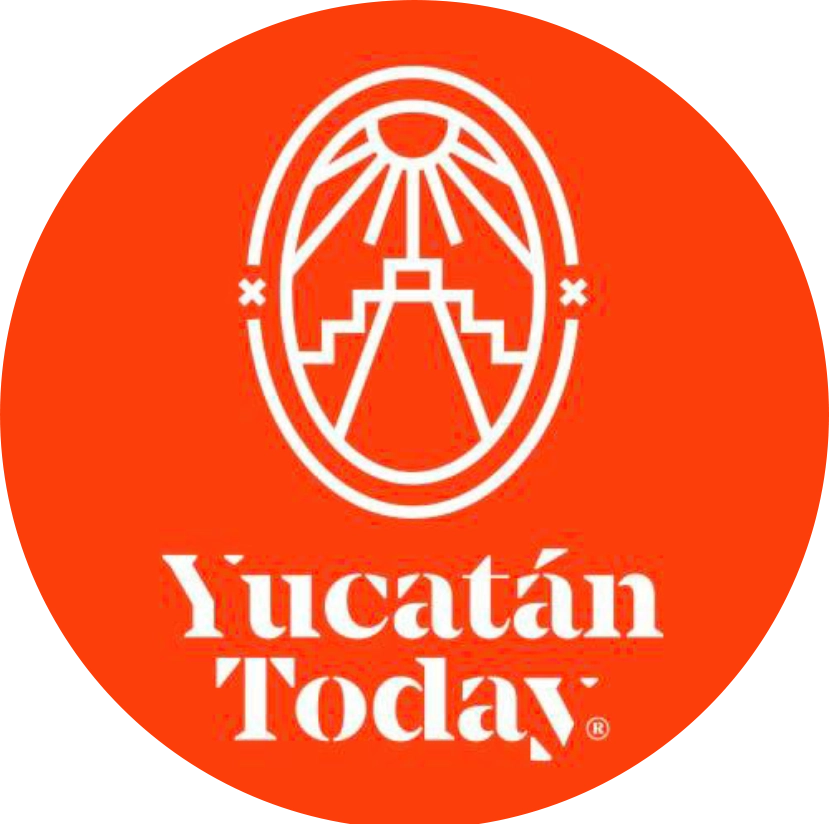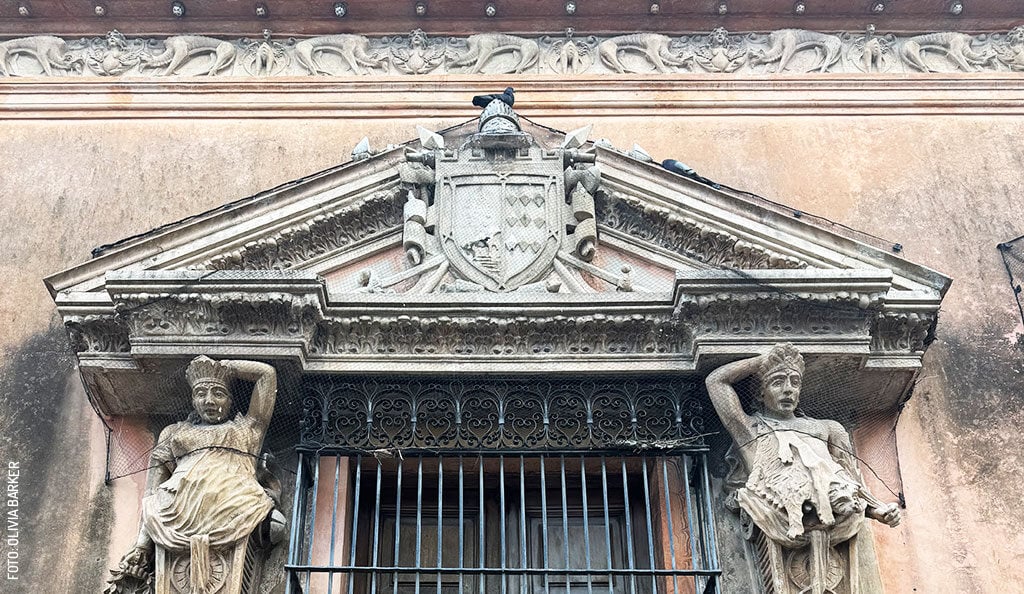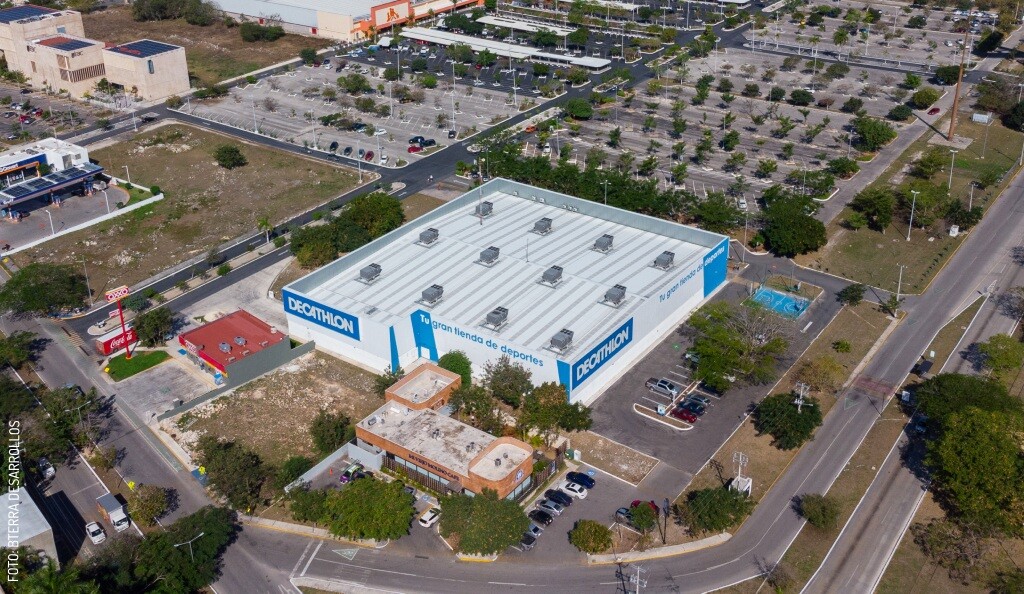
Buying Property in the Yucatán Península
Keenan has been living and selling real estate in Yucatán for nearly 20 years. He has been a licensed broker in the USA since the 1980’s. He holds a GRI (Graduate Realtor Institute) and CRS (Certified Residential Specialist) certifications from The National Association Realtors (NAR).
A Brief History
Understanding the dynamics of the real estate market in Mexico requires a reflection on the socio-economic conditions that have developed in Mexico over the last several decades.
The large middle class that has emerged in the last 30 years has provided for a more robust market place.
Additionally, with the growing foreign interest in living and investing in Mexico, the market is becoming more dynamic and secure for investment and ownership.
Historically, Mexico was a country of two large economic groups - the rich and the poor. The poor rarely owned real estate and the rich tended to subdivide what real estate they had and pass it to their heirs.
The current real estate market (where two previously unknown parties come together to buy/sell real estate) is a relatively young business in many regions of Mexico. This is why, in many parts of Mexico, there is no MLS, no real estate licensing requirements for agents, no governmental over-sight, limited institutional financing, and few large organized real estate companies or real estate professional organizations.
The exceptions are Mexico City, Monterrey, Guadalajara and many of the coastal resort areas like Mazatlán, Puerto Vallarta, Acapulco and Cancun, where there are limited MLS’s, large broker firms and semi-functional professional organizations like AMPI (Asociación Mexicana de Profesionales Inmobiliarios). It is important to remember that Yucatán has been an “anonymous region” separated from Mexico for decades. Yucatecos tend to think of themselves as Yucatecos first and Mexicans second. Rules, regulations and new business practices have tended to evolve here more slowly than in other regions of Mexico.
Historically in Yucatán, when two individuals come together in an agreement to buy/sell real estate the parties have utilized a “promise to buy/sell real estate” agreement (Promesa de Venta). The agreement is typically drawn up by the Buyer’s notario/attorney. Upon signing, the Buyer gives the Seller a deposit to hold as earnest money for “Consideration” (See Consideration as an element of real estate contract law). In return, the Seller provides the notario with current and notarized escrituras (title documents), cédulas (tax statements), planos (lot plan), personal data and corresponding information.
This “Promesa de Venta” is a vehicle still used in Yucatán and it is not unusual for a Seller to request this type of contract with the understanding that the Seller will hold the earnest money deposit. Should the Buyer fail to buy, at no fault of the Seller – the Buyer will forfeit the deposit. Should the Seller, for no fault of the Buyer, refuse to sell, there is a penalty clause in the contract stating the Seller must return the amount of the original deposit and pay a penalty, equal to the amount of the deposit, to the Buyer. If the Seller does not return the deposit and pay the penalty, the Buyer will have a very strong document for filing a lien against the property and quite possibly gaining title to the property after the legal process terminates. Please note that pursuing a legal action for “Performance” or “Specific Performance” will most likely be a long, time consuming and expensive process. The Mexican courts can be perplexing to Mexicans and completely confounding to non-Mexicans.
Buying Property on the Yucatán Peninsula
Today in most of the large communities across the peninsula there are real estate agents that provide tailored services to foreigners wishing to purchase property in a safe and secure manner. These services include : bilingual agents and administrative staff, standardized contracts, secure earnest money and escrow accounts, legal assistance, title insurance, funds wiring, monetary exchange banking, closing statements and continual brokerage relationship/service.
A good real estate firm will build solid relationships with their clients, helping them with a range of issues that will confront the foreign Buyer wishing to live and/or do business in Yucatán.
Additionally, a good real estate firm will have good connections for the best (often multi-lingual) attorneys, accountants, contractors, architects, doctors, etc.
After selecting an agent, check the various real estate websites and choose the properties that you’d like to tour. Your agent will schedule the appointments.
It’s a good idea to keep your selections to fewer than 7 properties a day. Trying to tackle more will prove to be frustrating and confusing. If you are looking for property on the beach or in the countryside (ranches, haciendas or quintas), the driving times can be considerable. If you are searching for homes in Merida, keep in mind that traffic in Centro Merida can be daunting and parking is often at a premium. Invest a few days to do a thorough search of the properties that fall within your parameters. It will not take long for a prudent Buyer to establish a sense of value and know the best buys available to them. Your agent should know if a property is over-priced or a good buy.
Some agents may charge a small daily fee taking you around to see property. Their time has value. Many foreign buyers are here on exploratory trips, gathering information and getting a feel for the area prior to investing. Many do not buy. It is fair to compensate the agent for their time and gas. Most agents will refund the fee at closing if the prospective Buyer buys a property through them. A knowledgeable agent is valuable. They can provide a ton of market information that they have been garnering for many years in the business.
After you have identified the property you wish to buy, your agent will draw up a standardized “Offer to Buy” contract. The offer will be presented to the Seller and they will either decline, accept, or counter the offer. Negotiating on purchase price, closing date, inclusions and other details is common. However, do not be disappointed if the Seller holds out for full price.
As of this update, this is a Buyer’s Market. The supply of inventory is great due to the global financial crisis of 2008 -2012. Since 2013 we have seen a steady uptick in the number of buyers returning to the market. The market could likely return to equilibrium in late 2014. Future strong demand and reduced inventory levels will put upward pressure on price.
If your offer is accepted and everything is signed, it is time to provide for the earnest money deposit and meet with your Notario/attorney.
The Buying Process (Fideicomiso or FOMC)
While touring properties with your agent, you will want to ask about a Fideicomiso and/or FOMC (Foreign Owned Mexican Corporation) to determine which is the best vehicle for you to utilize to hold title. Both have advantages and disadvantages.
The fideicomiso (bank trust) is a trust agreement that you establish with a bank to hold title of the property with you (you and the bank are both named in the title documents). The bank has a fiduciary responsibility to represent your interest in the property. You can obtain a fideicomiso through your notario.
Advantages of the fideicomiso
- The fidiecomiso gives you the rights and the vehicle to hold title to the property in perpetuity.
- The fideicomiso is a 50-year trust agreement that is renewable every 50 years by you or your heirs.
- You can transfer your rights in the fideicomiso to a foreign buyer.
- You may rent, sell, remodel or dismantle the improvements on the property.
- Your heirs can inherit the rights to the fideicomiso, effectively by-passing probate, should you depart without a proper will.
- There are tax advantages pertaining to capital gains taxes when you sell.
- The fideicomiso is easy to maintain by paying the annual fee to the bank. If the title papers, property dimensions and corresponding documentation are not perfect, the bank will not issue the fideicomiso.
We will discuss title irregularities later in this article. The main disadvantage of the fideicomiso is that it is restricted to hold a property of NO MORE THAN 2000 square meters (21,527 square feet). (There are exceptions and you can request a permiso for acquiring a fideicomiso that allows for a property larger than 2000 square meters. It is a complicated process requiring an invest plan, time line, inspections, architectural renderings, business plan, governmental red tape, etc. The exception is designed for an investor that plans to make a significant investment in the property.) Another disadvantage of the fideicomiso is that it is limited to one specific property. Sometimes you can put two adjoining properties into the same fideicomiso. Usually the fideicomiso is only applicable to one parcel of property.
The FOMC (Foreign Owned Mexican Corporation) is a vehicle that allows foreigners to open and operate a business in Mexico. The corporation is a Mexican entity. It has the right to hold title to real estate. An attorney or notario can help to set up the corporation. It is important to specify your business goals in respect to the property prior to setting up the corporation. Creating the corporation requires a minimum of 2 individuals (stockholders) of any nationality.
They must be at least 18 years of age. One of the stockholders will be required to be the managing partner. The managing partner must maintain a visa.
The corporation is required to make monthly reports to HACIENDA (the Mexican Department of the Treasury) reporting income and expenditures. The reporting needs to be done by a certified accountant.
Advantages of the FOMC
- Allows for the purchase of properties larger than 2000 square meters.
- No limit to the number of properties it may own.
- Allows for one or more of the stockholders to legally live and operate the corporation/business in Mexico.
Disadvantages of the FOMC
- The FOMC requires more hands-on attention than a fideicomiso.
- Capital gains taxes are more difficult to avoid when it sells property.
- Requires a managing partner with a proper visa.
- Monthly reporting of financial activity through a certified accountant.
The Notario /Attorney
A notario is an attorney that specializes in real property law and is specifically licensed by the state to legally transfer real estate from one party to another. The number of notario licenses is limited by the state. An attorney whom wishes to become a notario must first attend classes and then pass a board. It is a demanding process and many do not make the cut. For those few attorneys that do pass the test and are eligible to become a practicing notario, they enter a waiting list for the next available notario license from the state. The wait is usually many years. Frequently, a law firm will have several junior partners who have completed the notario board exam and can become the notario for the firm. A notario license is extremely valuable and dearly guarded by the firms that have them.
The notario is ultimately responsible to ensure that a clean and merchantable title is passed from the Seller to the Buyer and that the property taxes, transfer fees/taxes and any capital gains taxes are paid at or prior to closing. They are also responsible to properly record the transaction in their personal books and with the office of the Catastro (office of property titles). Should a notario fail to discharge their responsibilities in an honest, fair, complete and competent manner, they can be held liable and could lose their notario license. Choosing a notario is usually not difficult and your real estate agent will be able to suggest a good notario that is versed in transferring titles to Foreign Buyers. You may also choose to work with an attorney who is not a notario but is associated with one.
Frequently, these attorneys have passed their board to become a notario and are waiting their turn for a license. In the meantime, they are skilled at preforming the due diligence required to transfer the property. If you are setting up a corporation, it is a good idea to find an attorney/notario that understands the mechanisms of the proper corporation to best execute your business plan and objectives.
Having your corporation worded properly the first time will save money, time and frustration.
Notario fees will vary from one firm to another. Many fees are based upon the amount of the operation (appraised value of the property). Taxes and transfer fees are based upon this appraised value or the actual purchase price. Frequently, the appraised value of the property is much less than the actual purchase price.
The Closing Process
You have found your property, negotiated and signed a contract, paid your earnest money deposit and contracted with a notario/attorney to handle your closing. You have decided to either utilize the fideicomiso, corporation or both. Your attorney/notario has copies of your passport, visa, the contract, and perhaps a POA from you to sign on your behalf.
The ball is now in your attorney’s court to prepare all the necessary documentation for closing. This documentation includes insuring:
- There are no debts or liens against the property.
- The property taxes are current.
- The meets and bounds description are correct, title is clear and in the name of the Seller listed in your contract.
- The municipal water fee is current.
- Order the permiso for your fideicomiso and/or create your Foreign Owned Mexican Corporation.
Standard closing time from signing the contract to actual transfer of title is a process of 4-6 weeks. If there are disparities with the title or meets and bounds description it will take additional time to clear them and close.
Usually the “Offer to Buy” purchase contract provides for an automatic extension of 90-days to acquire proper documents if there is a variance. Should the discrepancy take longer than 90 days to rectify, the Seller and Buyer will need to sign an amendment to extend the closing date.
Most foreign buyers wire the proceeds for closing to our earnest money account a few days prior to closing. If the Seller wishes to be paid in pesos, we exchange the proceeds into pesos on the day prior to closing and prepare the proceeds to pay the Seller and the notario.
We issue a final statement for review by the Seller, Buyer, agents and attorneys prior to closing.
The broker acts as a closing agent and disburses funds. The notario will provide the Buyer with a copy of certified escrituras at closing.
Afterwards, the notario will send the new escrituras to the office of the Catastro for recording of the new owner and title. The Catastro will then send the newly recorded title either back to the notario, the Seller or the seller’s agent or accountant. The Office of the Catastro is notoriously slow. It is not unusual to wait several months for the new escrituras.
“Rectificación de las Medidas” (Rectifying the property measurements)
When a rectification of the property measurements is required, there is going to be a delay in closing. Essentially the escrituras on file with the Catastro and the Seller’s copy of escrituras have a difference in the meets and bounds measurements stated in the documentation.
If the property is to be held in a fideicomiso, the bank requires that the escrituras of the Seller and the escrituras on file with the Catastro be absolutely in accordance. If they are not, the Catastro will need to send an engineer to the property to measure and record the new measurements properly. After the engineer issues the new measurements, the owners of all the properties that bound the property must, literally, “sign off” on the new measurements. This can be a long and arduous process, especially if the property has numerous neighbors that adjoin the property.
Taxes
ANNUAL PROPERTY TAXES in the sates of Yucatán and Quintana Roo are inexpensive. Example: A property with an appraised value of $1,000,000 pesos will be assessed annual property taxes of less than $5000 pesos per year.
It is important to remember that property taxes are based upon the Catastral appraised value of the property. The homeowner should receive a predial (tax bill) every year that shows the property tax that has been assessed. Usually, if you pay the tax early in the year you receive a discount.
CAPITAL GAINS TAXES (called ISR or Impuesto Sobre la Renta) are assessed when you sell a property.
The current rate is 30% of the gain. The calculation used to arrive at the tax owed will depend upon several factors:
1. Years of ownership.
2. Citizenship or immigrant status.
3. Title held in Fideicomiso or Corporation.
4. Square meters of property.
5. Square meters of construction.
6. Electrical or Telephone receipts in Owner’s name that reflects the address of the property.
7. Proper ID of the Seller that reflects the property address.
8. Appraised value of the property at the date of purchase and at the date of sale.
If the property qualifies as your primary residence you can usually avoid a substantial amount of the ISR. To qualify for this exemption, as a foreigner, you will need to have the following:
1. A current visa that reflects your name(s) and address as it appears on your escrituras/fideicomiso.
2. Electrical and/or telephone receipts that also reflect your name(s) and address recorded in the escrituras.
3. The property must be held in a fideicomiso. Currently, a homeowner that qualifies to avoid a percentage or all of the ISR taxes is allowed to exercise that privilege once every 5 years.
CORPORATION CAPITAL GAINS taxes are more complicated. If you are holding title by utilizing a FOMC (Foreign Owned Mexican Corporation) you are going to want to employ a good accountant. They will be able to help you reduce your ISR debt when you sell.
Closing Costs
Typically the Buyer will be paying the closing costs. One exception to this general rule is when a foreign person is selling their home to a National or Mexican Citizen. If the Seller is holding title with a Fideicomiso, they will need to pay a fee to the bank to cancel the Fideicomiso when the property is transferred to the Mexican Buyer. Following is a list of closing items that will generate fees to the Buyer: Avalúo Bancario Derecho de inscripción Aviso de Relaciones Exteriores Impuesto Sobre la Adquisición de Inmuebles (2% Municipio) Impuesto al Valor Agregado Derecho sobre Escrituras Públicas Certificado de Libertad de Gravamen Certificado de no adeudar Impuesto Predial Certificado de no adeudar Cooperación Municipal Personalidad Protocolista Testimoniero Oficio Catastral (división, unión, otro) Registro Público: derechos. Grat. Catastro F-2. Otros: Constancia Agua Potable Fideicomiso Notario y Abogado Generally speaking, the closing cost will run around 4% of the purchase price but can run higher depending upon the vehicle used to hold title and the “valor” (value) of the property.
Tittle Insurance
Title insurance is available in Yucatán and Quintana Roo. This is a type of insurance that insures your title documents. If for any reason there is a legal issue and you are in danger of losing any part of the property, the title insurance reimburses you for the loss or pays for your legal defense of the property. Advise your agent and notario if you would like title insurance.
Mortgages Lenders
Mortgage lenders for foreign buyers are few.
Those that exist are expensive. Ask your agent for a reliable lender. Keep in mind that lenders in Mexico usually require a minimum 30% down. Interest rates are typically higher than in the USA or Canada.
There are many hoops to jump through and junk fees are pricey. Deals that involve a mortgage usually take a great deal more time to close and often cause a lot of "brain damage" for all parties.
Please feel free to contact me with any questions. I am at your service: mitch@mexintl.com
If you are thinking of moving to Mérida or are simply curious about this wonderful old Colonial city, hear opinions and insight from actual expat residents about what makes Mérida their choice of anywhere in the world to live. Discover how they went about the building and renovating process and why they chose to live here. Get a peek inside some of the city's spectacular colonial homes for the very first time. Exquisite scenes of Mérida are supplemented by an introduction to archeological sites, Progreso and the beaches, Izamal and more.
Property Management

Author: Yucatán Today
Yucatán Today, the traveler's companion, has been covering Yucatán’s destinations, culture, gastronomy, and things to do for 38 years. Available in English and Spanish, it’s been featured in countless travel guides due to the quality of its content.
Receive the latest articles and much more from the best of Yucatán in your email!
Related articles

Fray Diego de Landa: A Contradiction
Learn about Fray Diego de Landa in Yucatan: the Inquisition of Mani, the burning of Maya codices, and his book "Relacion de las cosas de Yucatan."
Centuries of History in Casa Montejo
La Casa de Montejo, built between 1542 and 1549 by the orders of Don Francisco de Montejo, conqueror of the Yucatán Península




